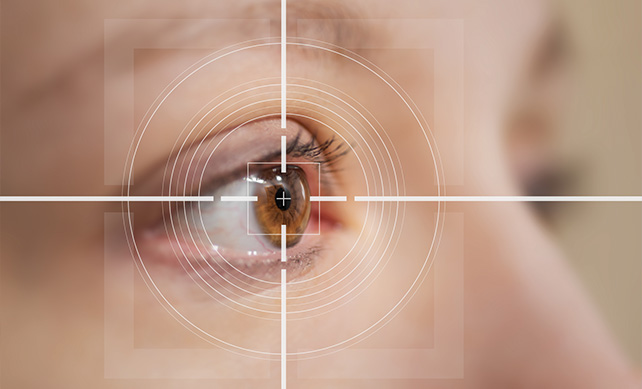Lasik Eye Surgery
What Is Lasik Eye Surgery
LASIK (Laser-Assisted in Situ Keratomileusis) eye surgery is a popular minimally invasive procedure. It is used to correct refractive errors in the eye, such as myopia (nearsightedness), hyperopia (farsightedness), and astigmatism. LASIK surgery aims to reduce or eliminate the need for reading glasses, regular glasses, or contact lenses.
During LASIK surgery, a highly precise laser is used. It reshapes the cornea, the clear, dome-shaped front surface of the eye. By altering the corneal shape, light rays entering the eye can be properly focused on the retina. The laser eye surgery results in improved or corrected vision.
Candidates For Lasik Eye Surgery
Not everyone is a suitable candidate for LASIK eye surgery. Several factors determine whether an individual is a good candidate for the procedure. Ideal candidates for LASIK generally meet the following criteria:
- Age: Candidates should be at least 18 (preferably 21 or older) to ensure their vision has stabilized.
- Stable vision: The prescription of a patient should be stable for at least one year before the surgery. Fluctuating vision may affect the surgery’s outcome.
- Eye health: Candidates should have healthy eyes. They should be free from conditions such as glaucoma, cataracts, severe dry eye syndrome, or corneal diseases that could affect the outcome of the surgery.
- General health: Good overall health is essential. Certain medical conditions like autoimmune diseases, diabetes, or immunodeficiency disorders may affect the healing process.
Everything is to assure you that you are in safe hands…
Lasik Eye Surgery Steps
LASIK procedure is a precise and efficient procedure to correct refractive errors. The process involves several steps, which are outlined below:
- Preoperative evaluation: A comprehensive eye exam is conducted to ensure the patient is a suitable candidate for LASIK. This evaluation includes measuring the corneal thickness, mapping the corneal surface, and checking for pre-existing eye conditions.
- Preparation: Before the procedure, the patient is advised to stop wearing contact lenses for a period (typically 1-2 weeks). It is to ensure the cornea returns to its natural shape. On the day of the surgery, the patient should avoid wearing makeup, lotions, or perfumes to minimize the risk of infection.
- Anesthesia: Once the patient arrives for the surgery, anesthetic eye drops are applied to numb the eye and minimize discomfort during the procedure.
- Creating a corneal flap: A specialized instrument called a microkeratome, or a femtosecond laser, creates a thin, hinged flap on the cornea’s surface. The flap is then gently lifted to expose the underlying corneal tissue.
- Reshaping the cornea: An excimer laser is used to remove a precise amount of corneal tissue. Fixes the shape of your cornea to correct the refractive error. The laser treatment is customized based on the prescription and eye measurements of the patient.
- Repositioning the corneal flap: The corneal flap is carefully repositioned and allowed to adhere to the underlying corneal tissue without stitches naturally.
Post-Operative Care
After the surgery, the patient is given protective eye shields and advised to rest. They are typically scheduled for a follow-up appointment the next day to ensure the eye is healing properly. The patient will also receive instructions regarding post-operative care to avoid any side effects. These instructions include using prescribed eye drops and avoiding certain activities that may hinder the healing process.
Overall, LASIK eye surgery is a quick, outpatient procedure, with most patients experiencing a significant improvement in vision within 24 hours. Recovery is generally rapid, allowing patients to resume normal activities within a few days.
FAQ
How much does LASIK eye surgery cost?
The cost of LASIK eye surgery varies depending on the provider, location, and other factors. On average, it can range from $1,500 to $5,000 per eye in the United States.
What is LASIK eye surgery?
LASIK (Laser-Assisted In Situ Keratomileusis) eye surgery is a type of refractive surgery that uses a laser to reshape the cornea to correct vision problems such as nearsightedness, farsightedness, and astigmatism.
How long does the effect of LASIK eye surgery last?
The effects of LASIK eye surgery are typically permanent. However, some people may experience changes in their vision over time due to natural aging processes or other factors.
Does LASIK eye surgery hurt?
LASIK eye surgery is typically performed under local anesthesia, so the procedure itself is painless. Some people may experience mild discomfort or a sensation of pressure during the procedure, but this can usually be managed with numbing eye drops.
How does LASIK eye surgery work?
During LASIK eye surgery, a small flap is created in the cornea using a microkeratome or femtosecond laser. The flap is then lifted and a laser is used to reshape the underlying corneal tissue, correcting vision problems.
What does LASIK eye surgery do?
LASIK eye surgery can correct a range of vision problems, including nearsightedness, farsightedness, and astigmatism. The procedure can improve overall visual acuity and reduce the need for glasses or contact lenses.




BLOG & NEWS
BLOG
Which Breast Augmentation Implant Is the Best?
see all

NEWS
TURKEYANA REDEFINING THE CONCEPT OF BEAUTY
see all





































